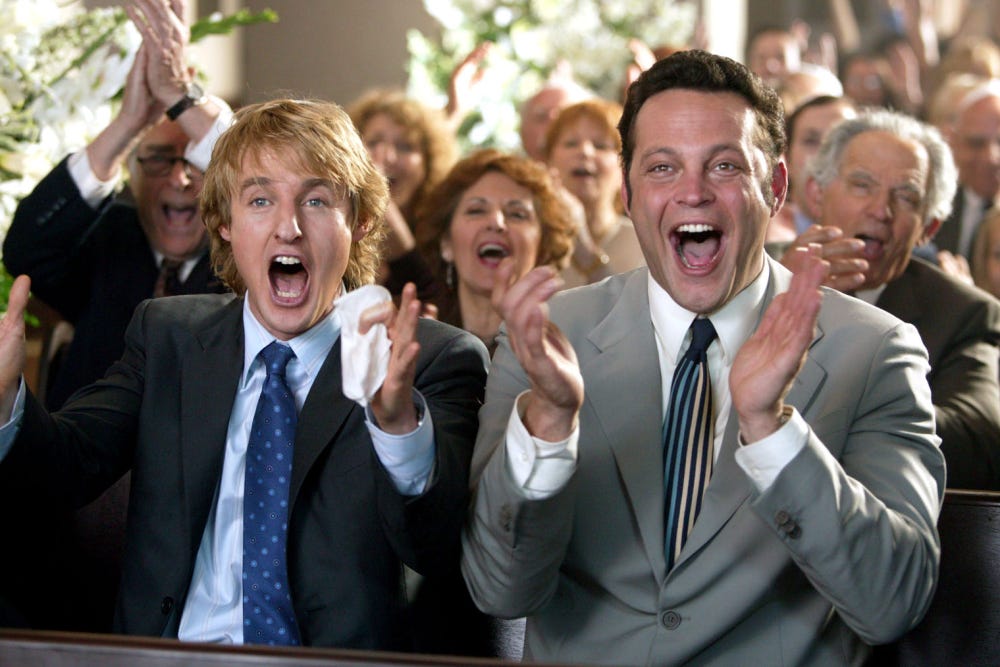Edginess Outlet Theory
The decline of benign ways for people to have shared cultural experiences being edgy is to our massive detriment.
Recently, someone asked what my strangest political belief is, and there was an immediate, obvious answer: we need to subsidize high-budget, raunchy, R-rated comedy. This might sound ridiculous on the surface, and it would certainly not be a panacea to all of our ills, but the idea might not be as preposterous as you think. As Judd Apatow became less central to American culture, the youth became more reactionary. Obviously, this is an incredibly complex issue that is not monocausal, but these coinciding is no accident.
Within society, there will always be a certain urge among people, especially — but far from limited to — adolescent boys and young men, to be edgy. For the purposes of simplicity, this will be treated as an umbrella word encompassing people being risqué, transgressive, deliberately defying polite social norms, etc. There is no way to prevent this urge for edginess from existing, it is just an inherent part of human nature.
However, edginess comes in a myriad of flavors, some far more harmful than others. Today, many young people base their personalities around influencers like Adin Ross or Andrew Tate or Nick Fuentes, who pitch reactionary, bigoted worldviews to their audience. By joining these fandoms, young men trying to understand themselves looking for ways to feel edgy get a sense of community. They develop a shared language around an aggressive form of conservatism and masculinity that fuels hateful, antisocial behaviors.
Much of what was massively popular with Millennials during our formative years was edgy. This took many forms, from Newgrounds flash games to people spreading around shock sites like Goatse. But nothing embodied mainstream Millennial edginess like big budget comedies. Pull a random Millennial American man off the street and there’s a high likelihood they can quote Anchorman or Zoolander or Wedding Crashers.
This is not to say that the politics in these films were always perfect — when you’re trans, you notice how often trans people are the punchline. But these were still films being made by liberal, open-minded people whose stories usually had morals about male camaraderie or learning to settle down with the right person after a wild youth. They did not exactly depict a wholesome version of masculinity, but still one that values personal growth and deep connections.
The takeaway from Wedding Crashers is explicitly supposed to be that you cannot feel fulfilled living a life like that forever — as driven home by Chazz, Will Ferrell’s washed-up character who they had previously spoke of as a man of legend in the wedding crashing community. They learn to develop a lasting connection with the women they meet in the film, realizing their lives are more enriched with them along for the ride, even if they had to leave a life they enjoyed of casual sex and seduction behind.
Though I do not think there is anything wrong with enjoying Marvel films, cinema went through an evolution where more and more big budget projects were tuned for the widest possible reach — PG-13, at least relatively family-friendly, nothing that would get it banned in important international markets. Nudity and raunchy depictions of sex were seen as potentially contributing to the objectification of women. Studio executives started playing it safe rather than giving these sorts of projects the resources they needed to continue to have the same sort of reach.
These films represent only one of many potential benign outlets for edgy behavior, but decisions like these were horribly deleterious to our culture — and to young men in particular. By ceding the realm of the transgressive in the name of profits and misguided interpretations of progressivism, it quickly became overrun with people whose intentions were far more sinister.
Ultimately, society functions at its best when it understands that people will never consistently display model, pure behavior and that policy and priorities should instead be built around minimizing harm. This transcends even issues of media and reactionaryism — alcohol prohibition proved disastrous, but investing resources into public health and combating drunk driving saves lives. Edgy behavior is a social drug rather than a literal drug, but it functions much the same way, giving people a bit of dopamine and adrenaline from the thrill of being “naughty.”
The media and cultural landscape has changed drastically since the aughts, so it may be difficult to replicate the golden age of edgy comedy films into which many Millennials came of age. However, building a healthy culture that does not lead people down rabbit holes of reactionary politics means providing popular, shared cultural experiences that enable people to feel edgy in benign ways. We need edginess outlets.


